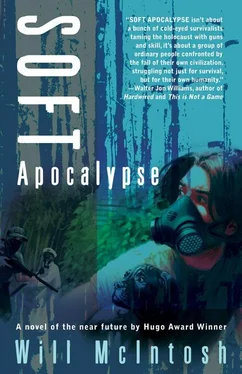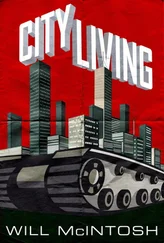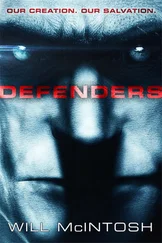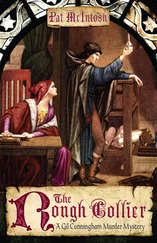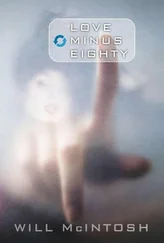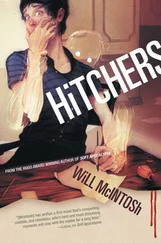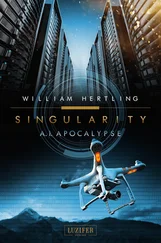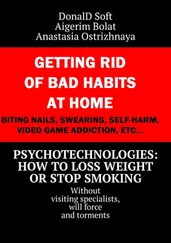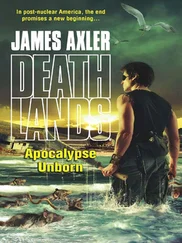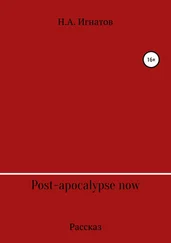On Whitaker, a tank was easily tearing through the bamboo outbreak, blazing a trail for troops and shoppers. But there weren’t many tanks in Savannah, and tonight Sebastian and his followers would plant more bamboo.
The news was now reporting Doctor Happy outbreaks in the northeast and west. There were bamboo outbreaks happening all over the world—China, Europe, South America. I hadn’t realized how large the Science Alliance’s operation was. Sebastian wouldn’t say whether all of these outbreaks had originated with his group in Atlanta, or even whether their group was a cell in a larger group. They had to be part of a larger group, to be able to pull off such a massive stunt.
There was a party raging in Pulaski Square. Twenty or thirty revelers were pounding on drums and trash cans while others circled them, doing some sort of square dance, hooking arms with each other. There were also at least two couples having sex right in the open. Opposite the square three cops stood on the sidewalk in front of a drug store, automatic weapons dangling from their fingers.
I caught a glimpse of movement on the roof above where the cops were lounging: hands, dropping something. A white oval plummeted, hit the sidewalk with a splat right at the cops’ feet. Blood spattered everywhere. A blood-bomb? That was a new twist. It drenched the cops, the sidewalk, the side of the building. The cops lifted their weapons, pointed them all over, looking for an assailant. Then they seemed to notice that they were covered in blood. They wiped frantically at their eyes and lips, looking scared as shit.
Shouts and laughter erupted from the crowd of partiers. The square dance dissolved; some of the revelers trotted toward the cops.
“Welcome to reality!” someone shouted.
A lanky guy wearing nothing but a loincloth that looked like a diaper ran up to one of the cops and patted him on the shoulder as others crowded around, cheering.
The cop pressed his automatic weapon into the lanky guy’s gut, and fired. The guy staggered backward. Before he hit the pavement the other cops were spraying gunfire into the looming crowd. Screams lit the air; people crumpled, slammed into each other in the frenzy to escape.
“No!”Ange and I shouted simultaneously. Ange moved toward the melee; I grabbed her elbow and yanked her away, toward cover.
One cop’s head suddenly snapped back; chips of scalp and brain sprayed on the drug store window. The cop went down as the window shattered. I looked around, trying to figure out who was firing on the cops. I spotted the flash of a muzzle from inside a copse of bamboo half a block behind us.
Two men stepped out of the bamboo—Jumpy-Jumps, with rifles raised, peering through scopes. The other two cops convulsed, their already blood-soaked bodies blossoming fresh as they fell to the pavement. It wasn’t taking the Jumpy-Jumps long to turn these new developments to their advantage.
Back home, I showered before joining Colin and Jeannie in the living room to watch the news. We watched footage of hundreds of Jumpy-Jump gunmen swarming the bamboo-choked streets of Chicago, then of a tank firing on insurgents in San Antonio. The Dadas were taking advantage of the chaos, spreading even more chaos.
What terrified me most were not the images, but the reporters’ voices. The usual calm, even cadence was gone, replaced by shrill, breathless, unpolished descriptions that gave me the feeling that they might drop their microphones and run at any moment.
“I wonder if Sebastian’s Nobel laureates expected this ?” Jeannie said as we watched.
“The way Sebastian talks, they have it mapped out down to where each body is going to fall.”
“Let me see the phone,” Jeannie said to Colin, wriggling her fingers. She called Ange and asked her to ask Sebastian if this was all part of the plan. Jeannie pulled her mouth away from the phone. “He says it draws energy away from the large-scale conflicts that are bubbling, and weakens the central government, and that in the long run those are good things.”
I’d heard this sort of crap before, from politicians. Whatever the results of their policies, they used some sort of tortured logic to argue that it was really a good thing.
I was struggling to get a sense of whose side I should be on. By nature I tended to favor anyone who took on the establishment. The establishment had proven that it was good at acting like it knew what it was doing, but was utterly incompetent underneath that façade. On the other hand these scientist-rebels seemed to be taking huge risks, treating the world as if it were a giant laboratory. Neither side seemed like a safe bet, and that was disconcerting.
I drifted off to sleep with my window open, serenaded by the ubiquitous crackle and pop of the bamboo, which drowned out much of the gunfire, and the screams of the night victims.
By morning, things had quieted considerably. We watched the news reports. The Jumpy-Jumps had melted back into the general population. The bamboo was still spreading.
The burble of the phone woke me. Our phone was so old that it didn’t play music any more; instead it made a tone-deaf warbling sound.
“Jasper?” It was Ange; she sounded beyond panic.
“What happened?” I asked, adrenaline rushing through me, burning away the muddle of sleepiness.
“Uzi’s gone.”
“He’s gone? From where?”
“I tied him to the bike rack and went into the grocery store, and when I came out he was gone.”
“Is the leash gone too? Did he break it?” I got out of bed, pulled a pair of jeans from the mound of clothes I’d worn yesterday.
“No, it’s gone too.”
“He still could’ve pulled loose. He’s probably nearby.”
“He wouldn’t run away, even if he got loose. Not Uzi.”
“But he must have,” I said. “Who would steal a big old mutt?”
Ange started to cry. “I don’t know. But he’s gone.”
“I’m on my way,” I said. “I’ll bring Colin and Jeannie. We’ll find him.”
I ran to get Colin and Jeannie. A lost dog—it was the sort of old-fashioned problem you didn’t often get to tackle these days. For a second I pondered the possibility that the bamboo outbreak had stifled food supplies to the point that people were kidnapping dogs and eating them, but that didn’t make sense. There were plenty of strays out there if you wanted to eat dogs, and besides, no one would tangle with a big, mean-looking dog like Uzi.
“Shhh, shhh, we’ll find him,” I said, my arm wrapped around Ange as we sat on the steps of her house. The sun would be down in a few hours. I knew what Ange was thinking: Uzi would be alone, in the dark.
An electric wheeming announced that Chair was coming around the corner. Ange stood, stared expectantly at the corner.
Chair was alone. He looked at Ange hopefully as he rounded the corner; she shook her head no. He pounded the arm of his wheelchair. Sebastian, Colin, Jeannie, and a few others were still out. There was hope.
“He’s okay,” I said. “There are a thousand strays wandering the streets. No one would take him, he just got loose. We’ll find him.”
Just as I spotted Sebastian, alone, heading toward us, I heard a pitiful whine from the other direction. I snapped my head around, seeking the source. It had come from the square, but there was nothing there.
I began to suspect it was my imagination, but then I heard it again. Ange heard it, too. She leapt from the stoop, calling Uzi’s name. I was right behind her.
We spotted him in the street across the square. He was moving slowly, slowly, his head hanging almost to the pavement.
“Uzi!” Ange screamed. Uzi howled miserably; Ange launched herself toward him. Uzi stopped at the edge of the square. There was something terribly wrong with him. He looked… twisted. As we closed the gap I saw something dangling from his stomach.
Читать дальше
